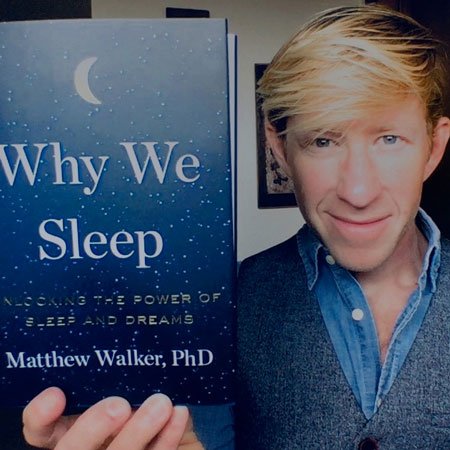The Crucial Role of SLEEP in Health and Performance
This month we are exploring SLEEP in our 5 most impactful factors to health and happiness: Eat. SLEEP. Move. Think. Connect. While much attention is often given to dietary choices and exercise routines, one element that frequently gets overlooked is sleep. Yet, it is perhaps one of the most impactful factors influencing our overall health and performance.
Research has shown that getting adequate sleep is essential for both body and mind. A recent study revealed a fascinating link between sleep deprivation and heightened cravings for unhealthy foods. Matthew Walker, a renowned expert in sleep science, explains how sleep influences decision-making processes, noting that insufficient sleep can dull higher brain functions while amplifying primal desires.
In a compelling conversation with Joe Rogan (watch it HERE), Walker delves into the nuances of sleep hygiene and dispels common myths surrounding sleep. He emphasizes the importance of prioritizing quality sleep, highlighting its profound effects on cognitive function, mood, and physical well-being.
“What we have discovered is that high-level brain regions required for complex judgments and decisions become blunted by a lack of sleep, while more primal brain structures that control motivation and desire are amplified”
For individuals striving to excel in their endeavors (and life in general), optimizing sleep is non-negotiable. Without sufficient rest, the body's ability to recover and perform at its best is compromised. Whether it's in the gym, home or at work, lack of sleep diminishes energy levels, increases susceptibility to injury, and hampers overall performance.
Moreover, inadequate sleep can sabotage efforts to maintain a healthy diet and lifestyle. When tired, the motivation to make nutritious choices wanes, leading to poor dietary decisions and a cycle of low energy and sluggishness.
Furthermore, the impact of sleep extends beyond physical health to mental and emotional well-being. A good night's sleep sets the tone for the day, influencing mood, productivity, and overall outlook. By prioritizing quality sleep, individuals can cultivate a greater sense of happiness, resilience, and emotional stability.
Fortunately, improving sleep habits is within reach for everyone. Whether through educational resources like Matthew Walker’s Masterclass or self-reflection and experimentation, there are numerous avenues to explore in the journey towards better sleep hygiene.
So listen to the podcast, take the Masterclass, or just start analyzing what you do to set yourself up consistently for 7-9 hours of quality sleep. See the difference that 4 weeks of honest effort can make. What do you have to lose?!
Tracking Sleep
One of the easiest ways to work on your recovery is to find ways of improving your quality of sleep and/or increase sleep duration. Throughout our lifetime our requirements for sleep change, with school-aged children requiring 9-11 hours of sleep daily, teenagers 8-10 hours, adults 7-9, and older adults 7-8 hours for optimal health and performance. Much like tracking macros or calories for dialling in bodyweight and composition, you can track your sleep using wearable technology such as a watch, band, or ring and syncing it to your smartphone. Keep in mind that these devices are not 100% accurate but they can provide you with trends, which is what you can use to decide whether your current routine and adjustments are working in your favor or if changes need to be made. These wearable devices can record multiple datasets that can even offer you a daily score, allowing you to adjust your daily training intensity and observe trends in sleep duration, quality, and training adaptation. For those looking to feel better and have more energy throughout the day, tracking sleep can guide you to your next big breakthrough in reaching your goals.
I’ve been tracking my sleep using an Apple watch since 2018 and by using multiple apps on my phone, I’m able to have a good understanding of what I need to do to set myself up for success. While it’s easy enough to know whether I had a good sleep or not, other variables such as Heart Rate Variability (HRV) can also give me insight into how elevated my stress levels are and whether I should be pushing myself following a good night’s rest. Other trends I keep an eye on are my resting and sleeping heart rates and what affects those both in the short and long term, my quality of sleep as well as sleep duration, and whether my training load is appropriate based on my recovery. Below are some images of the trends I’ve tracked over the past few weeks, using the apps SleepWatch and Athlytic.
Whether your goals are to be less tired during the day, have more energy for recreational activities, or to perform at your best, tracking sleep and recovery is a great tool and I highly recommend giving it a shot for a few months at a time, at least for understanding what your daily habits can do to you, or for you.








